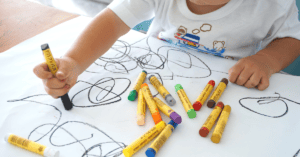Understanding Children’s Emotional Development Stages
Raising a child is one of the most challenging and rewarding experiences for parents. While children grow physically and cognitively, their emotional development is equally important for their overall well-being. Understanding children’s emotional development stages can help parents provide the right kind of support and guidance to help their children grow and mature emotionally.
Emotional Development in Infants
In the first year of life, infants develop a basic sense of trust or mistrust with their caregivers. Infants look to their caregivers for comfort, security, and a sense of belonging. If caregivers are responsive, nurturing, and affectionate, infants will develop a sense of trust. On the other hand, if caregivers are unresponsive, neglectful, or abusive, infants will develop a sense of mistrust.
Emotional Development in Toddlers
During the toddler years, children experience a wide range of emotions and moods. They may experience joy, anger, frustration, sadness, and fear. They also begin to understand and recognize their own emotions and the emotions of others. Toddlers learn to express their emotions through gestures, facial expressions, and vocalizations.
Emotional Development in Preschoolers
In preschool years, children become more adept at expressing and controlling their emotions. They also become more sensitive to the emotions of others and learn to show empathy. Children also develop a greater understanding of the causes of emotions and begin to recognize the connection between their own behavior and the emotions of others.
Emotional Development in School-Age Children
As children enter school age, their emotional development becomes more complex. They begin to understand the concept of emotions and develop the ability to express and control their emotions in more sophisticated ways. Children also become more aware of the emotions of others and learn to show empathy and compassion.
Supporting Children’s Emotional Development
As parents, it is important to support and encourage children’s emotional development. This can be done through:
- Providing a safe and secure environment for children
- Encouraging children to express their emotions
- Validating children’s emotions
- Modeling healthy emotional expression and coping skills
- Teaching children to recognize and understand the emotions of others
- Encouraging children to show empathy and compassion

Understanding children’s emotional development stages is important for parents to provide the right kind of support and guidance to help their children grow and mature emotionally. Parents can support their children’s emotional development by providing a safe and secure environment, encouraging expression, validating emotions, modeling healthy behavior, and teaching empathy and compassion. By understanding and supporting children’s emotional development, parents can help their children become emotionally healthy and well-adjusted adults.

